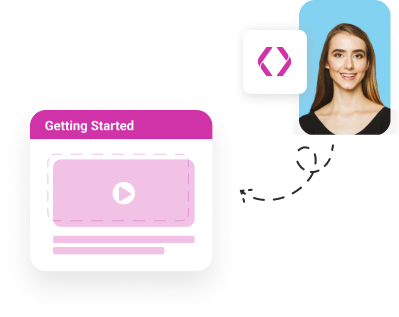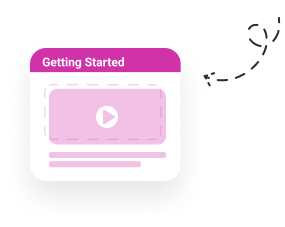Titan for Salesforce: How to Use Variables?

Media-savvy content creator, with a curiosity for all Salesforce experiences.
Variables offer your business the advantage of storing data in your web applications for easy manipulation and general web application building.
Titan gives you access to efficiently use variables with no coding to build cutting edge web projects. This article explores the different types of variables that Titan offers and how you can smartly use them to enhance your web applications.
Variables Explained
In Titan, the terms variables and parameters are interchangeable and refer to the same concept. If you are watching any Titan tutorials or reading our guides, please keep this in mind.
So diving in, variables are used to contain and pass data when integrating with Salesforce or your other web projects. It is important to remember that if you are looking for hidden fields going forward, they have now been replaced by variables in Titan.
Why? Unfortunately, hidden fields took up a lot of formatting space.

Not to worry, Titan has solved the hidden fields issue by streamlining the platform to use variables that are still invisible to the end users. Yes, admins cannot see variables when building a form, but the parameters can be accessed and seen in debug mode to review their values.
What are the different kinds of Variables and Formula Fields?
Here is a list of variables and formula fields within Titan and a breakdown of when you can use them in your web projects.
Variables
Formula Fields
Differences between Page and Project Variables
In essence, your business can utilize different levels of variables for the separate levels of your web project. For your convenience, Titan provides variables at the page, project, and strip levels. Each variable has its own use case.
Take a look at the table below. We have explained a few popular questions regarding the differences between page and project variables:
| Common Feature Questions | Page Variables | Project Variables |
|---|---|---|
| When are my variables live? | Variables can only be live on the page it is assigned to. | Variables are live on every page across the entire project. |
| Can variables be used for conditional logic and integrations? | Only when the end user is on a page containing a variable can the parameters be utilized with conditional logic and integrations. | Variables can be used for conditional logic and integrations at any point in the project. |
| When are conditions active? | Conditions on page variables will only remain active on the assigned page. | Conditions on project variables will be executed and remain active on every page load. This feature may affect the performance and speed of your project. |
| Can variables be passed? | Variables can be passed from page to page and used across the project as needed. | Variables do not need to be passed to other parameters to be active on other pages in the project. |
| How do I set my variables? | Set page variables by clicking on the Pages button in the menu > ellipsis icon > Configure actions. | Set project variables by clicking on the grey settings wheel > Tools > Custom Variables |
| Can i use a variable as a URL? | No | Yes |
| Are my constant variables supported? | No | Yes |
Visit our support page if you want more information on creating variables in Titan.
What are Strip Variables?
Strip variables are available when using repeated strips or columns in a web project. You may use them to store unique values for individual records stored within their repeated type. Go ahead and identify your strip and column variables when setting your conditions or Salesforce integrations with Titan.

Read-Only Function vs Constant Variables
Small reminder, we changed the read-only function name to constant variables in Titan.
Constant variables are only available for project variables, ensuring that end users fill the parameter field once. Do you need this capability?
How to use URL Variables?
Titan also allows you to fill in project variables using URLs to send a project to specific individuals with a personalized project link that connects to their Salesforce records. Here are a few essential tips when working with URL variables:

How to Review and Troubleshoot Variables
Now that you have mastered Titan’s variables, how do you know they are working correctly? We have summed up a few points to help you in your investigations:
Are you interested in variables and how they can elevate your web applications? Visit our YouTube channel and watch our “Titan Web Best Practices: Working with Variables“ video if you need more in-depth guidance on variables, how to access them, and when to use them.
The Main Take Away
Thank you for reading this best practice article, and we hope you have more information at your fingertips to utilize the variables in Titan confidently. If you need more assistance for your custom Salesforce use cases, ensure you get in touch with us through one of our social media channels below. We would be more than happy to help extend your Salesforce experience today!
Contact us by visiting:

Do you like this Best Practice guide?
Schedule a demo to get started with Titan variables today!


